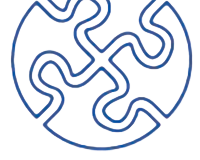The chemical industry in Europe focuses on core activities and has outsourced logistics activities to third party logistical suppliers. The chemical companies want to assure themselves that the activities are carried out in accordance of own safety and quality standards. In the past individual chemical companies carried out periodic audits at their suppliers of logistical services. This has led to a fragmented treatment with a variety of questionnaires and requirements. This increased cost and inefficency were a burden to both the chemical and the transport industry.
For this reason Cefic in 1990, have set up, within the framework of its Responsible Care policy, an ICE programme. An important aspect of this ICE programme was the development of a safety quality assessment system (SQAS) in 1994 covering the logistical supply chain.
Over the years SQAS has evolved in complete Assessment system covering Safety and Haelth, Quality, Environment, Security as well as Corporate Social responsibility elements. SQAS is a tool to evaluate management systems of thelogistic service providers in a uniform manner by means of a standardised questionnaire. This reduces the need for chemical companies to do their individual audits. Thereby, the SQAS report helps the chemical companies in their choice of logistical service providers and stipulates areas of improvement.
The SQAS assessment, that is carried out by an independent assessor, does not result in a certificate, but results in a detailed objective factual report. This report can be reviewed by chemical companies and compared with their specific requirements. The system replaces the various types of inspections to which a supplier of logistical services had been exposed previously, without giving up the dialog between both parties.
Although SQAS on itself does not ensure the safety and quality of the provided service, the system introduces a a mechanism to evaluate ongoing improvement. The system provides useful feedback to the service provider concerning the observed strong and weak points during the assessment. As a result, the individual chemical company can evaluate and compare outcomes of the assessments.
The assessment takes place once every 3 years. The report is archived in the database of Cefic and is accessible for the assesed company as well as the SQAS user group members. The assessed company receives no certificate but however a detailed assessment report. If an organisation desires to increase their score, this is possible by executing intermediate assessements. The organisations can choose the subjects to be re-assessed. The assessor determines the required time. Intermediate assessements must be carried out by the same assessor that carried out the original assessment. The original expiry date remains valid.
The time spending, will be determined based on the Pre Assessment Document information. This PAD indicates a minimum amount of man-hours that have to be spend in order to carry out a thorough assessment. In general, per assessment (for instance Core and Transport Services module), 2 or 2,5 assessment days will be required.
This time spending applies by location. Every location must be assesed entirely (complete assessment unless establishments lay within 5 kilometres of each other. Satellite locations can be assessed within one month after the head office, with reduced time.
At present L.O.A.C. can carry out assessments according the following SQAS schemes:
•SQAS Core element/core elements (applies allways)
•SQAS Transport services (used in combination with Core)
•SQAS Cleaning stations (used in combination with Core)
•SQAS Warehouse (used in combination with Core)
•ESAD-II/SQAS Distributer, the Distributorpart and theSite-specific part (or additional modules: Chlorinated Solvents & module Food, Pharma &, Cosmetics (GMP))
Companies that are involved in food, food contact or feed transport can also be assessed against the GMP criteria that are included in the questionnaires.
